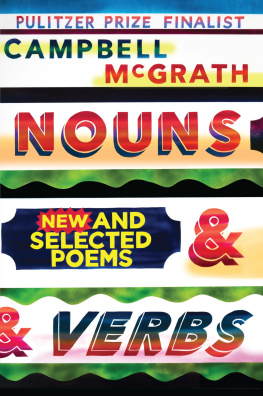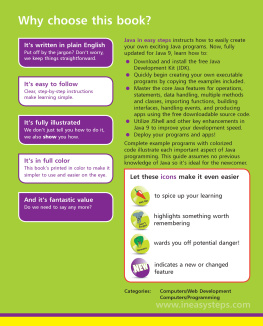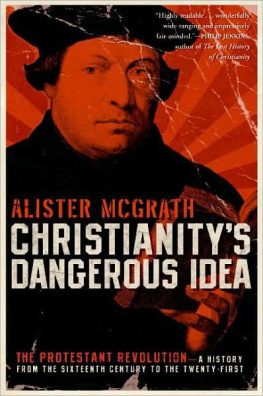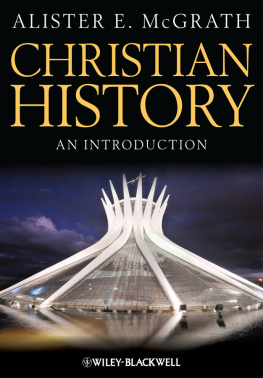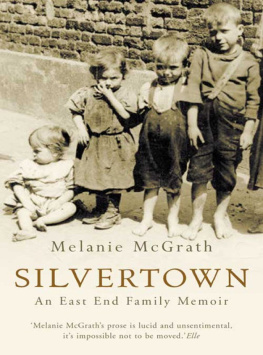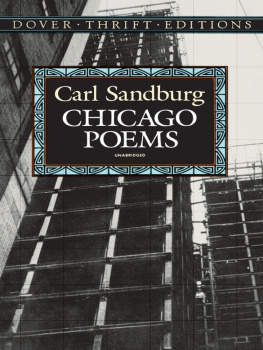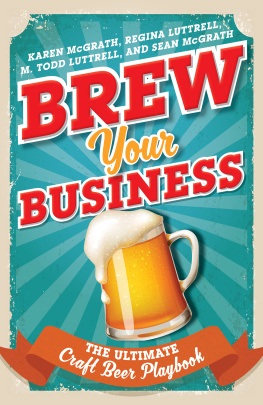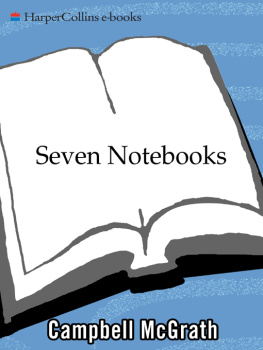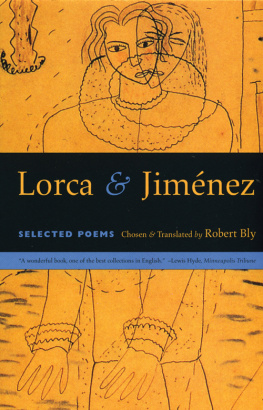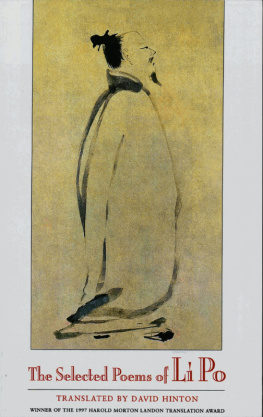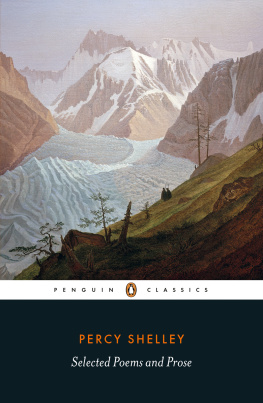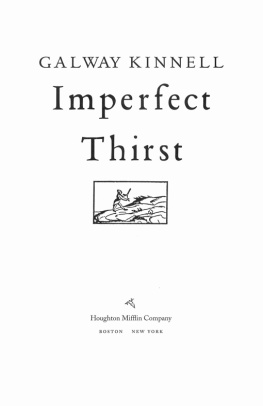Rendering poetry in a digital format presents several challenges, just as its many forms continue to challenge the conventions of print. In print, however, a poem takes place within the static confines of a page, hewing as close as possible to the poets intent, whether its Walt Whitmans lines stretching to the margin like Route 66, or Robert Creeleys lines descending the page like a string tie. The printed poem has a physical shape, one defined by the negative space that surrounds ita space that is crafted by the broken lines of the poem. The line, as vital a formal and critical component of the form of a poem as metaphor, creates rhythm, timing, proportion, drama, meaning, tension, and so on. Reading poetry on a small device will not always deliver line breaks as the poet intendedwith the pressure the horizontal line brings to a poem, rather than the completion of the grammatical unit. The line, intended as a formal and critical component of the form of the poem, has been corrupted by breaking it where it was not meant to break, interrupting a number of important elements of the poetic structurerhythm, timing, proportion, drama, meaning, and so on.
Its a little like a tightrope walker running out of rope before reaching the other side. There are limits to what can be done with long lines on digital screens. At some point, a line must break. If it has to break more than once or twice, it is no longer a poetic line, with the integrity that lineation demands. On smaller devices with enlarged type, a line break may not appear where its author intended, interrupting the unit of the line and its importance in the poems structure. We attempt to accommodate long lines with a hanging indentsimilar in fashion to the way Whitmans lines were treated in books whose margins could not honor his discursive length.
On your screen, a long line will break according to the space available, with the remainder of the line wrapping at an indent. This allows readers to retain control over the appearance of text on any device, while also indicating where the author intended the line to break. This may not be a perfect solution, as some readers initially may be confused. We have to accept, however, that we are creating poetry e-books in a world that is imperfect for themand we understand that to some degree the line may be compromised. Despite this, weve attempted to protect the integrity of the line, thus allowing readers of poetry to travel fully stocked with the poetry that needs to be with them. Dan Halpern, Publisher
To Daniel HalpernContents
Poets may inhabit a realm of words, but they remain closet numerologists.
Perhaps its a vestigial memory of counting syllables in all those lines of iambic pentameter, but ten seems like a significant number, and so ten books feels like a milepost worth pausing beside, a place to assess, examine, parse, and reassemble. Thus this book, which surveys thirty-five years of writing (the most recent poems were written in 2016, the oldest in 1981), though only eight of my ten previous collections are actually represented here. Shannon: A Poem of the Lewis and Clark Expedition is a book-length poem that feels complete unto itself, while XX: Poems for the Twentieth Century is too recently published to need revisiting. Longer poems are simply harder to accommodate, and so The Bob Hope Poem is represented by only a single section, while works such as The Florida Poem and Dawn Notebook are absent altogether. The mandate of such a collection, as I see it, is to offer a hint of where you are going while charting the territory already explored. Accordingly, the first of this books five sections is composed of new poems, written over the past six or seven years, in a variety of shapes and sizes.
In the hopes of creating a book that harmonizes with, but does not echo, the originals, I have organized older poems by form rather than chronology: there are two sections of lyric poems, a lengthy set of prose poems, and a sequence of longer poems reconstituted as an episodic personal epic, An Odyssey of Appetite, which explores Americas limitless material and spiritual hungers. If anything has obsessed my creative impulse to date, surely it is this. There is also a scattering of uncollected poems, happy to have found a home at last. Nouns & Verbs is just that, I hopenot a greatest-hits collection but a new house sheltering some familiar residents, a book that stands on its own solid foundation, unbothered by a few termites in its beams or a little rain seeping in around the windows.
No sir, absolutely not, sorry, but no. Not sorry, actuallyjust no.
Keep it simple, plain vanilla: nope. Not happening. Big en, big oh. No way, no how. Negative, nuh-uh, ixnay, nyet. No no, no no.
No-no-no-no-no-no-no. Not likely, not likely. Maybe, but I doubt it. Possibly, conceivably, in theory. Un-huh, mm-hmm.... Well yeah, sure, okay, why not, oh definitely, yes, wow, I mean anything, anything at all, when can we begin?
Today is a trumpet to set the hounds baying.
The past is a fox the hunters are flaying. Nothing unspoken goes without saying. Loves a casino where lovers risk playing. The futures a marker our hearts are prepaying. The futures a promise theres no guaranteeing. Today is a fire the field mice are fleeing.
Love is a marriage of feeling and being. The past is a mirror for wishful sightseeing. Nothing goes missing without absenteeing. Nothing gets cloven except by dividing. The future is chosen by atoms colliding. The pasts an elision forever eliding.
Today is a fog bank in which I am hiding. Love is a burn forever debriding. Loves an ascent forever plateauing. Nothing is granted except by bestowing. Today is an anthem the cuckoos are crowing. The futures a convolute river onflowing.
The past is a lawn the neighbor is mowing. The past is an answer not worth pursuing. Love is only won by wooing. The futures a climax forever ensuing. Nothing gets done except by the doing.
Turning fifty, at last I come to understand, belatedly, unexpectedly, and quite suddenly, that poetry is not going to save anybodys life, least of all my own.
Turning fifty, at last I come to understand, belatedly, unexpectedly, and quite suddenly, that poetry is not going to save anybodys life, least of all my own.
Nonetheless I choose to believe the journey is not a descent but a climb, as when, in a forest of golden-green morning sunlight, one sees another hiker on the trail, who calls out, Where are you bound, friend, to the valley or the mountaintop? Many thingsseaweed, pollen, attentiondrift. News of the universes origin infiltrates atom by atom the oxygenated envelope of the atmosphere. My sense of purpose vectors away on rash currents like the buoys I find tossed on the beach after a storm, cork bobbers torn from old crab traps. And what befalls the woebegotten crabs, caged and forgotten at the bottom of the sea? Are the labors to which we are summoned by dreams so different from the tasks to which sunlight enslaves us? One tires of niceties. We sleep now surrounded by books, books piled in heaps by the bedside, stacked along the walls of the room. Let dust accrue on their spines and colophons.
Let their ragged towers rise and wobble. Of course the Chinese poets were familiar with all this, Tao Chien, Hsieh Ling-yn, Po Ch-i, masterful sophisticates adopting common accents for their nostalgic drinking songs, their laments to age and temple ruins and imperial avarice, autumn leaves caught in a tumbling stream. As the river flows at the urging of gravity, as a flower blooms after April rain, we are implements of the unseen, always working for someone else. The boss is a tall woman in a sky-blue shirt or a man with one thumb lost to a crosscut saw or science or art or the Emperor, what matter? We scrabble within the skin of time like mice in the belly of a boa constrictor, Jonah within Leviathan, pacing the keel, rib to rib, surrounded by the pulse of that enormous, compassionate heart. Later we dance in orchards of guava and lychee nuts to the shifting registers of distant music, a clattering of plates as great fish are lifted from the grill, seared black with bitter orange and lemongrass. Orchid trees bloom here, Tulip trees and Flame trees, but no Idea trees, no trees of Mercy, for these are human capacities, human occasions.

